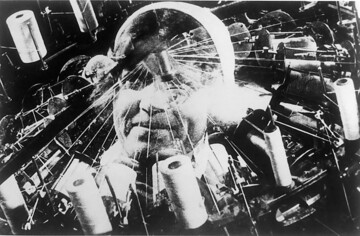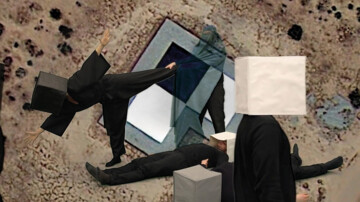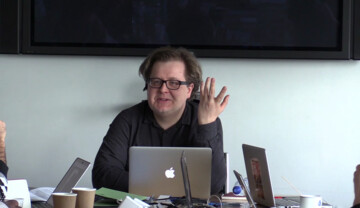Before asking the question, “when and how, finally, will capitalism end?” or prophesying “the end times” it would be more consistent to explore firstly the capitalism’s stubborn and multiple continuities themselves. Certainly, they were unleashed and became visible in the monotonous and non-teleological “post-historical” sequence that began after the collapse of the communist alternatives of the 20th Century.
Of course, this sequence of continuities is not absolutely monotonous. It is full of internal political conflicts or states of exception – but according to the famous sentence of Walter Benjamin recently reiterated by Giorgio Agamben, the state of an exception itself now became “permanent”, or continuous. The sequence is strained by new waves of economic crisis, by various excesses of neoconservative and neoliberal politics but it is still grounded in a persistent social ontology of the continuities. They are present in many layers of the contemporary so-called “24/7” society whose essential feature is the uninterrupted continuities of production, exchange, consumption, communication, and control, with its socio-technical infrastructure of Internet, social media, various incessant social institutions, nonstop e-commerce, etc. This massive socio-technological apparatus of continuity produces the subjugated subjectivities permanently preoccupied with the time pressure or captured in procrastination loops.
The theme of continuity should be addressed both as a theoretical concept and as the crucial paradigm of social and political operation of contemporary capitalism. A little-noticed discussion about the continuity as the fundamental condition of capitalist production can be found in Marx’s Grundrisse. It is possible to locate an analysis of this continuity at the margins of the texts by Walter Benjamin (capitalism as a “permanent cult” which operates "without mercy or respite”, "without holidays"), or by Michel Foucault (the “continuum” of power) and in some other more contemporary critical studies.
I would like to have a look at specific extensions of the capitalist continuum as well as at the resistances to its monotonous pressures, as they are expressed or critically reflected in contemporary practices of art (for instance, so-called “time-based art”) and in the recent political struggles (such as social movements based on non-teleological and contingent continuity of occupations and evictions).
This would lead us to the question – what would be “the constituencies” of a politics of counter-continuity to come? An enigmatic anticipation of such politics can be audible perhaps in the words of Samuel Beckett's narrator in The Unnamable whose main problem is how “to go on (or “continuer” in the French original)” in spite of full exhaustion of meanings and forces, and who can be probably a prototype of counter-continuity activist: "…everything will continue automatically, until the order arrives to stop everything".





